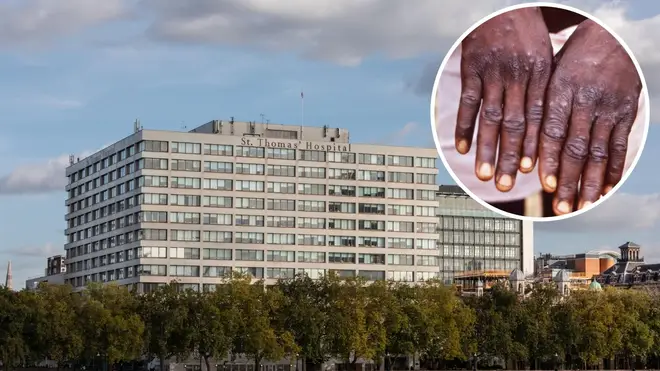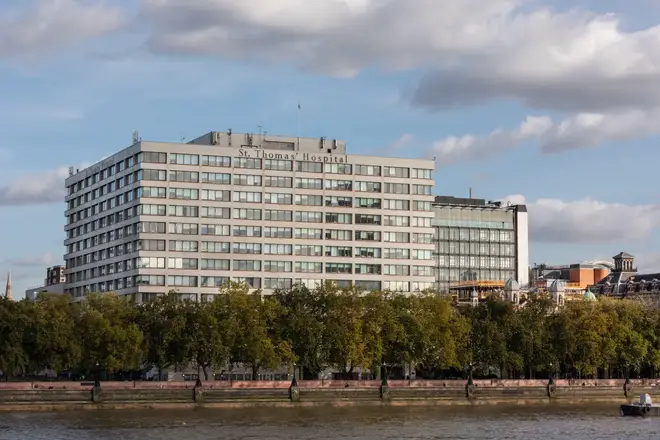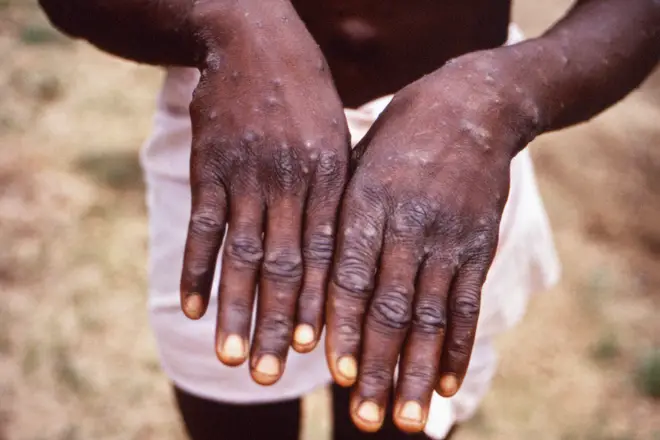
Clive Bull 1am - 4am
7 May 2022, 14:36 | Updated: 7 May 2022, 15:02

A rare case of monkeypox has been confirmed in England, health bosses have said.
The patient is believed to have contracted the infection from Nigeria, where they recently travelled, before returning to England, the UK Health Security Agency (UKHSA) has said.
The person is being treated at the expert infectious disease unit at the Guy's and St Thomas' NHS Foundation Trust, London.
Monkeypox is a rare viral infection that does not spread easily between people but can be spread when someone is in close contact with an infected person.
The first UK case of monkeypox was recorded in September 2018. The individual was also believed to have contracted the infection in Nigeria.
It is usually a mild illness and most people recover within a few weeks. However, severe illness can occur in some individuals.
Symptoms include fever, headache, muscle aches, backache, swollen lymph nodes, chills and exhaustion.
Read more: 'Putin's £570m superyacht' seized by Italy over fears it may sail to international waters
Read more: Maddie McCann prosecutors probe whether she was killed after sale to child traffickers

A rash can also develop, often beginning on the face, then spreading to other parts of the body, the UKHSA said.
People who might have been in close contact with the infected patient are being contacted by the UKHSA.
This includes contacting a number of passengers who travelled in close proximity to the patient on the same flight to the UK.
People without symptoms are not considered infectious but, as a precaution, those who have been in close proximity are being contacted to ensure that if they do become unwell they can be treated quickly.
Read more: Minister refuses to say whether Keir Starmer should resign if he broke law over 'Beergate'

Dr Colin Brown, director of clinical and emerging infections at the UKHSA said: "It is important to emphasise that monkeypox does not spread easily between people and the overall risk to the general public is very low.
"We are working with NHS EI to contact the individuals who have had close contact with the case prior to confirmation of their infection, to assess them as necessary and provide advice.
"UKHSA and the NHS have well established and robust infection control procedures for dealing with cases of imported infectious disease and these will be strictly followed.”
Read more: Taliban orders all Afghan women to wear head-to-toe burkas in public
Dr Nicholas Price, director NHSEI high consequence infection diseases (airborne) network and consultant in infectious diseases at Guy's and St Thomas', said: "The patient is being treated in our specialist isolation unit at St Thomas' Hospital by expert clinical staff with strict infection prevention procedures.
"This is a good example of the way that the high consequence infectious diseases national network and UKHSA work closely together in responding swiftly and effectively to these sporadic cases."